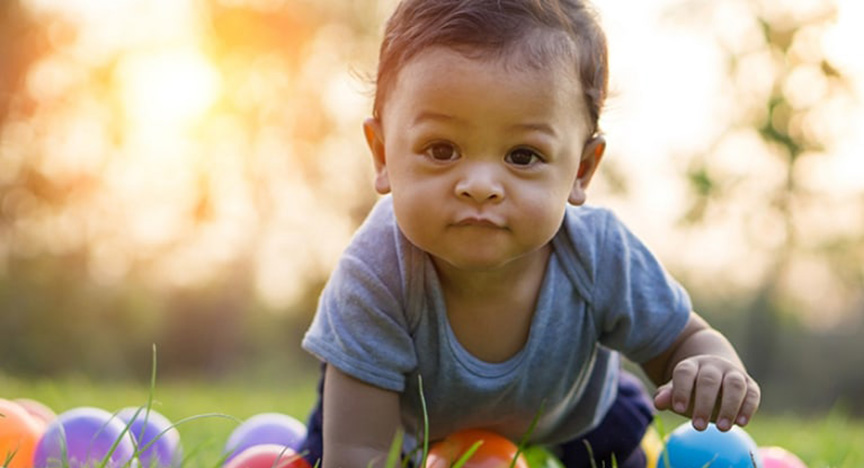
It’s a thrilling, unforgettable moment when your baby smiles for the first time, takes their first step or speaks their first words.
But these milestones are more than just picture opportunities or something to talk about at the next parents’ group meeting. They can be important indicators of how your child is developing.
So what are developmental milestones? They are the basic behaviours or physical skills that children achieve and display as they grow and develop. Different milestones are achieved at different ages and generally happen in the same order. For example, a child typically starts crawling between the ages of eight and nine months.
But it’s important not to get too caught up about reaching all milestones at ‘normal’ times. Every child is different and will develop at their own pace. The baby who sits up before all the others in their playgroup might be the last one to walk!
What is ‘normal’ varies a lot, even in the same family. For example, the normal age range for children to start walking is between eight and 18 months. So, if your child isn’t walking at 14 months, it’s fine.
Ultimately, parents know their children better than anyone else and your knowledge is invaluable to health professionals. You can also play a leading role in helping your child achieve developmental milestones.
Here are some simple and fun things you can do with your child to support their development:
- Newborn babies: First things first, get to know your baby and enjoy bonding with him or her. Cuddle, talk to your baby and learn the signals for when they are sleepy or hungry. Don’t worry about spoiling your baby – responding to them promptly actually helps them to feel secure and loved.
- Up to four months: At this age, babies develop skills for speech and language by listening to sounds around them. Talk softly to your baby, play music and sing with them and read simple books to them.
- Four to eight months: Babies are curious at this age and want to learn about the things they see and hear. Talk to your baby during everyday activities such as nappy changing and meal times.
- Eight to 12 months: at this age, your baby needs opportunities to explore and experiment with new skills. Increase your baby’s personal/social skills by letting them play with cups in the bathtub. Bath time is a great learning time!
- Twelve to 16 months: Reading aloud, singing to your child and sharing stories assists with your child’s development. Children love games and nursery rhymes at this age – try Pat-a-cake, This Little Piggy Went To The Market, or try different ways of playing games, such as sock puppets.
For more information about developmental milestones and activities you can do with your child to support their development, download the Ages and Stages information sheets.
When to seek help
If you are ever concerned about your child’s development and think there might be a problem, speak with your GP or your local child health nurse. You can also contact 13 HEALTH (13 43 25 84) and ask to speak to a child health nurse.